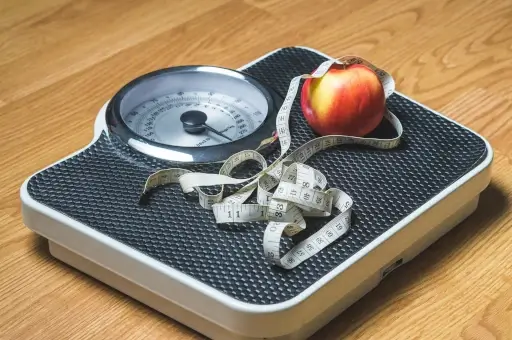Healthy Weight Calculator
Use our Healthy Weight Calculator to estimate your ideal weight based on your height, age, and gender for a healthier lifestyle.
Result

Maintaining a healthy weight is one of the most important things you can do for your overall well-being. It reduces the risk of numerous diseases and helps you feel better physically and mentally. This Healthy Weight Calculator is a simple tool that can help you estimate what your healthy weight should be based on factors such as gender, height, and age. Below, we’ll explain the significance of healthy weight and how you can use the calculator to find your ideal weight.
Why is Maintaining a Healthy Weight Important?
Healthy weight is a critical component of maintaining your overall health. When your weight is within a healthy range, it can lower your risk of developing chronic conditions such as:
- Heart disease
- Type 2 diabetes
- High blood pressure
- Joint problems
- Sleep apnea
- Certain types of cancer
In addition to reducing health risks, maintaining a healthy weight can improve your quality of life by increasing energy levels, enhancing mobility, improving sleep, and boosting your confidence and self-esteem. It can also reduce stress and help improve your mental health. Having a healthy weight isn't just about appearance—it’s about living a healthier and happier life.
What is a Healthy Weight?
A healthy weight is generally defined as the weight range that reduces your risk of developing health problems. It is typically assessed using a variety of measurements, such as:
- Body Mass Index (BMI): A measurement of weight in relation to height.
- Waist-to-Hip Ratio: A measure of fat distribution around the body.
- Waist-to-Height Ratio: Another measure of fat distribution, particularly around the abdominal area.
However, BMI is the most commonly used method for determining whether a person is in a healthy weight range. The ideal BMI range is between 18.5 and 24.9. If your BMI is below 18.5, you are considered underweight; if it’s between 25 and 29.9, you are overweight; and if it’s over 30, you are classified as obese. Though BMI can help assess your weight status, it doesn’t take into account other factors like muscle mass, bone density, or distribution of fat. That’s where this Healthy Weight Calculator can help.
How the Healthy Weight Calculator Works
This calculator estimates your ideal weight based on your height, gender, and age. It is important to note that there is no "one-size-fits-all" number when it comes to healthy weight. What is healthy for one person may not be for another due to individual differences such as genetics, muscle mass, and body composition. The calculator will give you an estimate, but it is important to discuss your specific weight goals with your doctor or healthcare provider.
The calculator uses a simple formula that takes into account the average body fat percentages for both men and women, as well as their average metabolic rates. It then compares your body’s needs to those averages to give you a range of healthy weight for your height.
Understanding Gender Differences in Weight Calculations
When calculating ideal weight, gender plays an important role. Men and women generally have different body compositions. Men typically have more muscle mass, while women tend to have a higher percentage of body fat. These differences are taken into account in the Healthy Weight Calculator to provide you with more accurate results based on your gender.
For example, men often have a higher percentage of lean muscle mass, which makes them burn calories faster and increases their ideal weight range. Women, on the other hand, have a higher body fat percentage, so their ideal weight tends to be slightly lower for the same height. The calculator accounts for these differences when determining your healthy weight.
How Age Affects Healthy Weight
Age is another important factor that can influence your ideal weight. As you age, your metabolism naturally slows down, and muscle mass tends to decrease. This means that as you get older, you may need to adjust your weight goals. It’s important to keep this in mind when calculating your healthy weight because what might have been a healthy weight for you in your twenties may not be the same in your thirties or forties.
For older adults, maintaining muscle mass through exercise and strength training can help prevent weight gain and improve overall health. This is why it is essential to maintain a well-balanced diet and stay active as you age. Using the Healthy Weight Calculator in combination with regular physical activity can help you achieve and maintain a healthy weight throughout life.
Factors That Affect Your Ideal Weight
While height, gender, and age are some of the most important factors that influence your healthy weight, there are other factors that can play a role as well. These include:
- Genetics: Some people are naturally predisposed to be heavier or lighter, regardless of their lifestyle choices. Genetics can affect your metabolism and the way your body stores fat.
- Muscle Mass: Muscular individuals may have a higher healthy weight due to the added muscle mass, which weighs more than fat. This is why BMI may not always be an accurate measure of healthy weight for people who are very muscular.
- Bone Structure: People with larger bone structures may have a higher healthy weight compared to those with smaller frames. Bone density can contribute significantly to overall weight.
- Physical Activity: Active individuals tend to have more muscle mass and lower body fat percentages, which can increase their healthy weight range.
- Diet: Nutrition plays a significant role in maintaining a healthy weight. A balanced diet that is rich in nutrients can support a healthy metabolism and weight management.
Using the Healthy Weight Calculator for Better Health
Once you’ve calculated your healthy weight using the calculator, it’s important to take action. Here are some steps you can take to achieve and maintain a healthy weight:
- Eat a balanced diet: Make sure to include plenty of fruits, vegetables, whole grains, and lean proteins in your diet. Limit processed foods, sugary drinks, and unhealthy fats.
- Exercise regularly: Aim for at least 150 minutes of moderate-intensity aerobic activity per week, combined with strength training exercises to maintain muscle mass.
- Stay hydrated: Drink plenty of water throughout the day to stay hydrated, which helps regulate your metabolism and supports overall health.
- Get enough sleep: Aim for 7-9 hours of quality sleep each night to support healthy weight management and improve your energy levels.
- Track your progress: Keep an eye on your weight, measurements, and overall health over time. If needed, adjust your diet or exercise routine to stay on track.
Maintaining a healthy weight is a journey that requires commitment to a balanced lifestyle. By using the Healthy Weight Calculator and taking the necessary steps to improve your diet, exercise routine, and overall well-being, you can achieve your weight goals and lead a healthier life. Remember, healthy weight is about more than just appearance—it’s about feeling your best and minimizing your risk for health conditions.
Consult with a healthcare provider or dietitian to get personalized recommendations on weight management based on your specific needs. With the right tools and support, you can achieve and maintain a healthy weight for life!





